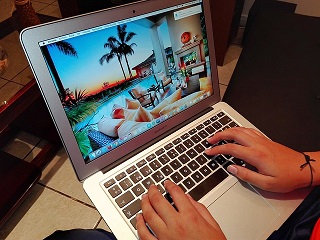The ultimate aim of any hotel’s website is to wrestle traffic away from the OTA’s and drive direct bookings. Unfortunately, many properties are driving a steady stream of travellers to their websites only to fall at the final hurdle.
If you’re seeing high rates of traffic but low bookings, it’s time to check if your website has fallen prey to any of these common online booking pitfalls.
1: Your Guests Are Forgetting About You
For most travellers, the online holiday planning process takes place in “micro-moments;” spare snatches of browsing time grabbed when convenient, and often across multiple devices. Holiday shoppers might be browsing on their laptops at home, on their desktops between tasks at work and from their Smartphone on their daily train commute. With such a fragmented journey to booking, it’s no surprise that your guests may be prone to forget about you, even if they liked what they saw when they browsed your pages and perhaps even started making a booking.
Fix It
Remind travellers that visited your website about your hotel by running remarketing ads using Google AdWords or advertising tools on Facebook and the other major social platforms. These tools work by generating a small piece of code for your website. Each time a travel shopper visits a page with the code on, they get added to a list of people you can target with remarketing ads to steer their thoughts back to your property as they continue their booking journey.
2. Making A Booking Is Too Complicated
Why are OTA’s so successful? Because they have the buyer journey carefully stripped down and clearly signposted, with minimal distractions, unnecessary steps and fuss.
Is the journey a guest takes to making a booking on your hotel’s own website as streamlined? If not, it’s time to take another look.
Fix It
The process of selecting and booking a room should be intuitive, straightforward and contain only as many steps to completion as necessary.
Each page of your hotel’s website should contain a prominent “book now” CTA, which should be viewable without scrolling, and your navigation should guide users along the booking funnel.
Only ask travellers to part with as much information as you strictly need to secure a booking and if possible, display room availability at a glance.
3. Your Booking Engine Isn't Mobile Friendly
Data from Google reveals that 54% of leisure travellers and 69% of corporate guests name mobile usability issues as a reason for switching to another device to book, while almost 80% of leisure travel shoppers are not confident about finding the same deals on mobile that they come across on desktop. While all these prospective guests switch between devices to hunt for the best deals and find the simplest ways to book, you risk losing their interest to a competitor.
Fix It
Simplifying the buyer journey and making the whole booking experience as user friendly as possible is even more important when it comes to securing bookings from travel shoppers browsing from a small screen.
For example, buttons need to be big enough and well spaced out enough to tap with a finger and text and other page elements should automatically resize to fit any size screen. Including assurances of best price as well as clearly laying out your cancellation policy will help mitigate concerns travellers have concerning missing the best deal on mobile. It’s also a good idea to include a click to call button to assuage the concerns of those who are still less confident about booking through mobile.
What do you think? Have you reassessed your hotel’s online booking process recently? Let us know in the comments below!
RELATED PAGES AND BLOG POSTS:
– 3 Tips For Irresistible Calls To Action
– Want To Drive More Bookings? Sell Experiences, Not Rooms
– How To Design A Mobile Experience That Generates Conversions

